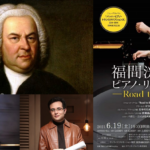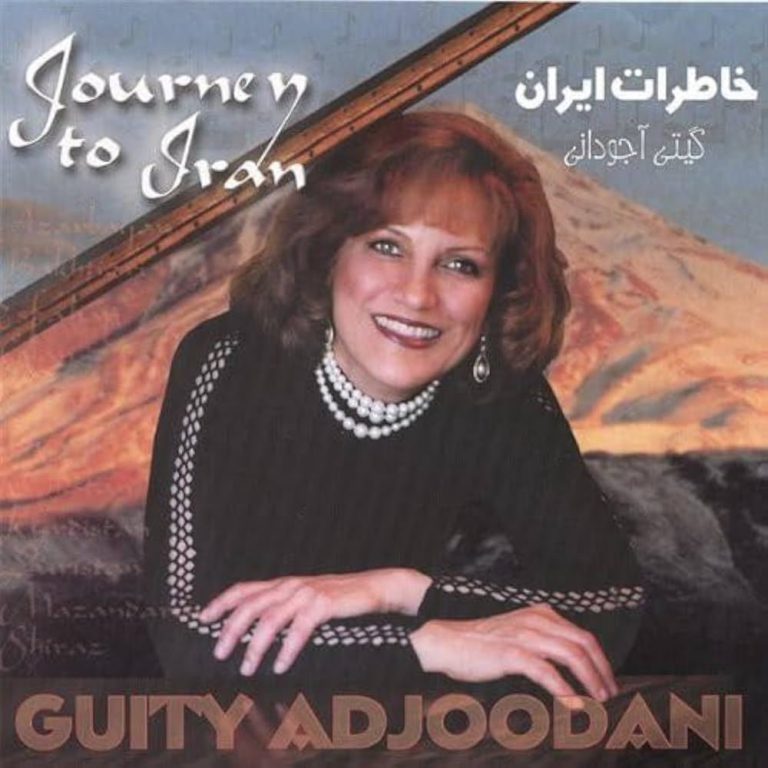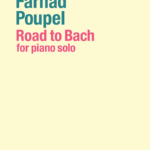While the name “Persia” (Western historical name of Iran) has attracted tens of thousands of people from around the world to London’s British Museum to visit ancient Persian artifacts, the Nuremberg-based music company, Colosseum, invites Europeans to listen to eight masterpieces of Persian symphonic music.
Tag Archives: Ali Rahbari
Latest posts
- Transition to Enlightenment: Six Lectures on Mozart’s String Quartets (5)
- Nasser Masoudi: The Voice of Gilan and a Legacy of Iranian Music
- Farhad Poupel: The Voice of the Shahnameh in the Orchestras Around the World
- Five Major Myths About Mozart’s Life
- Bahma Rajabi Passed Away!
- Reza Vohdani; Unveiling unpublished works, preservation of Iranian classical music
- Ahmad Pejman Passed Away!
- Timeless or Timely: The Role of Historical Context in Defining Artistic Value
- Leading the Charge in Censorship
- The Legacy of Khosrow Jafarzadeh
- Transition to Enlightenment: Six Lectures on Mozart’s String Quartets (4)
- Fereydoun Shahbazian, An Iranian Musical Icon Passed Away
From Past Days…

Farhad Poupel’s piece, Road to Bach, performed at Suntory Hall
On June 19, 2021 , young Iranian composer and pianist, Farhad Poupel’s piece, Road to Bach, was performed at the prestigious Suntory Hall by the great Japanese pianist, Kotaro Fukuma. The piece was commissioned by Kotaro Fukuma to have its world premiere in Suntory Hall during a concert by the same name.

Gholam Reza Khan Minbashian: a pioneer in Iranian music (II)
Gholamreza Khan Minbashian taught courses such as organology, orchestration of military music and harmony based on the books which were translated from French into Persian with the help of Aliakbar Mozayyan-o-Dolleh (1846-1932).

Journey to Iran Revisited: Celebrating 20 Years of Guity Adjoodani’s Return to Persian Roots
This year marks the 20th anniversary of “Journey to Iran,” an album by Iranian pianist Guity Adjoodani that has resonated with audiences worldwide. Released two decades ago, this album is a beautiful tapestry of twenty Persian folk songs, each carefully selected from the rich musical traditions of various regions in Iran. It also features four notable compositions by the esteemed Javad Maroufi (1915-1992): “Prelude,” “Jila Fantasia,” “Golden Dreams” (Khaab-haa-ye Talaayi), and “Isfahan Rhapsody.” Additionally, the album includes the beloved song “Kiss Me” (Maraa Bebous) by Majid Vafadar (1912-1975), adding depth to an already impressive collection.

Transition to Enlightenment: Six Lectures on Mozart’s String Quartets (2)
Innovation and Creativity The Enlightenment era championed innovation, creativity, and the relentless pursuit of knowledge, values that resonate prominently in Mozart’s string quartets. Mozart, a luminary of the Enlightenment, used the quartet form as a playground for his inventive spirit, pushing the boundaries of traditional structures and harmonic progressions. Mozart’s innovative approach is evident in…
Read More

A few steps on the “Road to Bach”
The world of music has unparalleled respect for Bach. Bach is considered the spiritual father of classical music; Bach’s great position is due not only to his great achievements in the fields of harmony, counterpoint, and compositional sciences but also to his respect for and adherence to the artistic principles of classical music. In the history of classical music, it is recorded that Bach walked about fifty kilometers to listen to the music played by the great German organist Dieterich Buxtehude, and this is the path that every idealistic classical music student should walk.

From the Last Instrumentalist to the First Composer (II)
Rouhollah Khaleghi was the master of composing beautiful melodies. He was the premier of the course of history which was first established by Ali Naghi Vaziri and which improved the Iranian music from simply a gathering music to the classical music of the country. First efforts to compose independent and instrumental music can be also traced in Khaleghi’s works.

The Structure of Kurdistan Daf (VI)
Researcher: Mohammad Tarighat Translator: Fatemeh Alimohammadi Hooks and attached rings: The junction of the ring to the arch is about 3 centimeters from the skin. The ring with its side rings should be as far as the diameter of a ring (about one and a half to one and eight centimeters) to make a proper…
Read More

Interview with Farhad Poupel (I)
Born in Isfahan, Iran, and based in the UK, Farhad Poupel’s music has been performed and will be performed in numerous prestigious concert halls and festivals throughout the world including Suntory Hall in Tokyo, Japan; La Roque-d’Anthéron Piano Festival, La Roque-d’Anthéron, France; Biarritz Festival, Biarritz, France; Stoller Hall, Manchester, UK; Janacek academy of music and performing art, Brno, Czech Republic; Karlskrona International Piano Festival, Karlskrona, Sweden; by distinguished artists such as Kotaro Fukuma, Peter Jablonski, Daniel Grimwood, Margaret Fingerhut, Catherine Carby, Kristýna Znamenáčková,Jeffrey Biegel, Jean-Francois Bouvery and orchestras such as Windsor Symphony Orchestra or broadcasted on the NPR Radio 4, Netherland. The following is an interview with him on the ocaasion of the premier of the Legend of Bijan and Manijeh.

“Symphonic Poems from Persia” Released in Germany
While the name “Persia” (Western historical name of Iran) has attracted tens of thousands of people from around the world to London’s British Museum to visit ancient Persian artifacts, the Nuremberg-based music company, Colosseum, invites Europeans to listen to eight masterpieces of Persian symphonic music.

Transition to Enlightenment: Six Lectures on Mozart’s String Quartets (3)
Wolfgang Amadeus Mozart, a musical prodigy of the Classical era, was deeply influenced by the intellectual currents of the Enlightenment. His exposure to Enlightenment ideas was multifaceted, shaped not only by the cultural milieu of his time but also by the relationships within his family and his own interactions with prominent figures of the Enlightenment. This exploration will delve into Mozart’s acquaintance with Enlightenment ideas through his father’s relationships and his own encounters with influential personalities of the era, including Christian Fürchtegott Gellert, Baron Melchior Grimm, Madame d’Epinay, and Joseph von Sonnenfels. Additionally, the essay will examine the impact of Joseph II’s reforms on Mozart’s life and artistic endeavors.